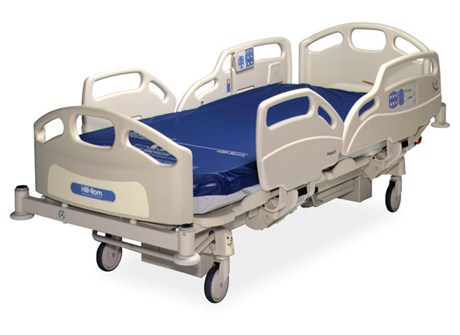Posted in Medical Device Business by Chris Newmarker on January 14, 2015

Hill-Rom—the dominant player in the U.S. hospital bed market—is facing a federal lawsuit in western Texas that alleges that the company has used its position to squeeze out competitors in the hospital rental market.
The company filing the suit, Bloomington, MN–based Universal Hospital Services (UHS), claims that it is seeking relief from Hill-Rom’s practices. Calling Hill-Rom "a serial monopolist and violator of the antitrust laws" in its suit, UHS accuses Hill-Rom of trying to secure its market dominance by in hospital-bed rental markets by offering bundled deals that “nobody else” could match. The complaint also says Hill-Rom has a history of engaging in “exclusive dealing and bundled discounts” in the rental markets for patient handling equipment (PHE) and moveable medical equipment (MME). The complaint filed states that “Hill-Rom has built, extended, and maintained its monopoly power through a long history of anti-competitive actions, including illegal monopolization and exclusionary bundling practices.”
Hill-Rom dominates the market for hospital beds in the United States. Shown here is their Hill-Rom 1000 medical surgical bed.
“Hill-Rom has started leveraging its market power in the Standard Hospital Bed market by negotiating sole-source agreements with national group purchasing organizations and hospital networks that contain steep discounts and rebates on the sale of Standard Hospital Beds bundled with ironclad commitments to use Hill-Rom for their PHE and MME Rental needs,” UHS’ lawyers write in the complaint. UHS also says they want to prevent Hill-Rom “from tortiously interfering with its asset management service programs.”
Hill-Rom officials could not be immediately reached for comment.
According to Universal Hospital Services’ telling of the story, Hill-Rom has been returning to old habits that got it in legal trouble in the past. UHS’ lawsuit filing recounts how Hill-Rom and its predecessor Hillenbrand paid more than half a billion dollars in the past decade to settle two lawsuits accusing it of similar practices.
An voluntary injunction from one settlement expired in 2009 “just as Hill-Rom was bringing in new management and growth in the hospital equipment market began to slow,” according to the lawsuit filing.
“As a result, Hill-Rom was confronted with a choice: compete on the merits of its PHE and MME products as a ‘new’ Hill-Rom or return to its old anti-competitive practices with the ends being used to justify the means. Ultimately, Hill-Rom chose recidivism.”





